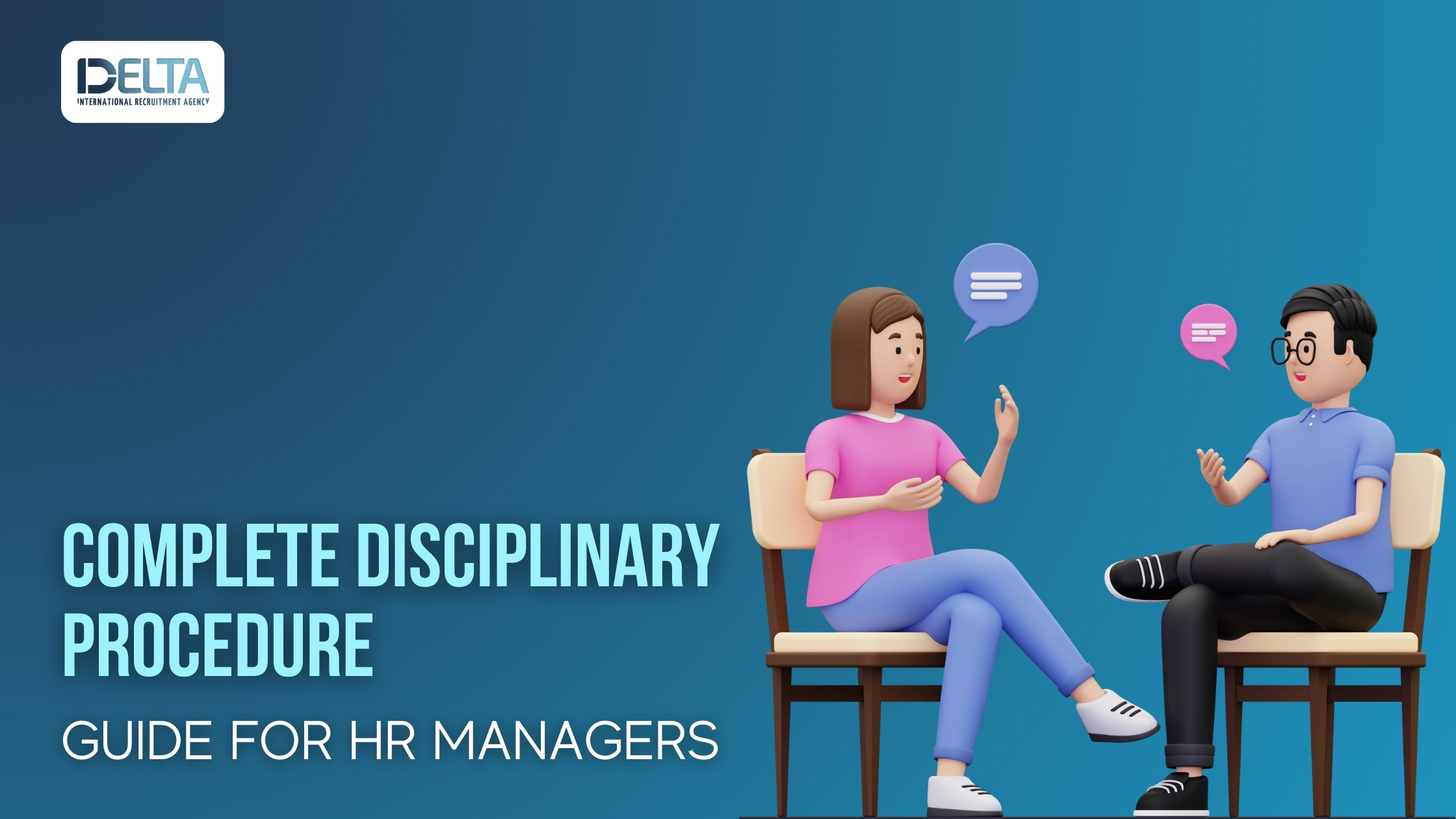Managing disciplinary issues in the workplace is a critical responsibility for HR managers. A well-structured disciplinary procedure ensures fairness, consistency, and compliance with legal requirements, while maintaining a positive work environment. This guide provides a comprehensive overview of the disciplinary process, from initial warnings to dismissal.
1. Establishing Clear Policies
The foundation of an effective disciplinary procedure is a clear, detailed staff handbook. This document should outline acceptable behavior, company policies, and the procedures for addressing misconduct. Key areas to cover include:
- Health and safety rules
- Internet use policies
- Attendance and timekeeping
- Anti-bullying and harassment policies
Ensure that all employees are familiar with these policies to prevent misunderstandings and provide a reference point during disciplinary actions.
2. Addressing Minor Issues: Verbal Warnings
When minor issues arise, an informal conversation can often resolve the problem. A verbal warning is the first step in the disciplinary process and aims to correct behavior early. Document the date and details of the verbal warning for future reference, as this can be important if the behavior persists.
3. Formal Warnings
First Written Warning
If the issue continues after a verbal warning, a first written warning is issued. This document should detail the misconduct, expected improvements, and the consequences of failing to improve. The employee should sign the warning to acknowledge receipt, and a copy should be placed in their personnel file.
Second Written Warning
A second written warning is given if there is no improvement after the first warning. This warning should reiterate the issues, previous attempts to address them, and the potential consequences if the behavior does not change. This step emphasizes the seriousness of the situation.
Final Written Warning
A final written warning is issued when previous warnings have not led to improvement, or the misconduct is severe. This document should comprehensively outline the history of the disciplinary actions, the current issues, and the immediate steps required to avoid dismissal. This warning indicates that termination is imminent if there is no improvement.
4. Investigation and Disciplinary Meeting
For more serious issues, a formal investigation is necessary. This involves gathering evidence, interviewing witnesses, and possibly suspending the employee with pay during the investigation. Ensure that the investigation is thorough and unbiased.
Once the investigation is complete, hold a disciplinary meeting. Provide the employee with written notice of the meeting, including details of the allegations and the potential consequences. During the meeting, present the findings and allow the employee to respond. They have the right to be accompanied by a colleague or a trade union representative.
5. Making a Decision and Communicating the Outcome
After the disciplinary meeting, decide on the appropriate action, which could range from no action to dismissal. Communicate the decision to the employee in writing, outlining the reasons and any further steps. If a written warning or dismissal is issued, ensure it is documented properly.
6. Right to Appeal
Employees must have the opportunity to appeal any disciplinary action. An appeal should be heard by someone not involved in the original decision to ensure impartiality. The appeal process should be outlined in the staff handbook and followed carefully to avoid legal challenges.
7. Handling Gross Misconduct
In cases of gross misconduct, such as theft or harassment, immediate suspension and a thorough investigation are necessary. Follow a fair process, including a disciplinary meeting, to ensure compliance with legal standards. If dismissal is decided, it should be clearly justified and documented to prevent claims of unfair dismissal.
Conclusion
By following these steps, HR managers can handle disciplinary issues effectively, ensuring fairness and compliance with legal requirements. Clear policies, thorough investigations, and well-documented procedures help maintain a positive and productive workplace.
Tips for Employers: Recruitment Industry




